Despite challenges of the COVID-19 pandemic, the work of the African Jesuit AIDS Network of reaching out to the vulnerable in society continues steadily. On 10th, 17th and 24th of June 2021, AJAN partnered with the Catholic Prisons Chaplaincy (Nairobi region) to hold a seminar for catechists. They came from various correctional facilities including Kenya Prisons Training College, Lang’ata Maximum Women’s Prison, Kiambu Prison, Kamiti Command, Nairobi Remand, Allocation Maximum Prison, Nairobi West, and Kiambu Prisons.
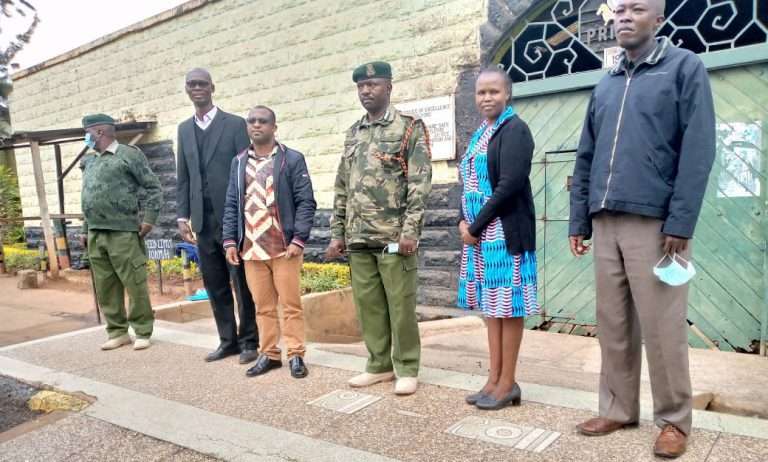
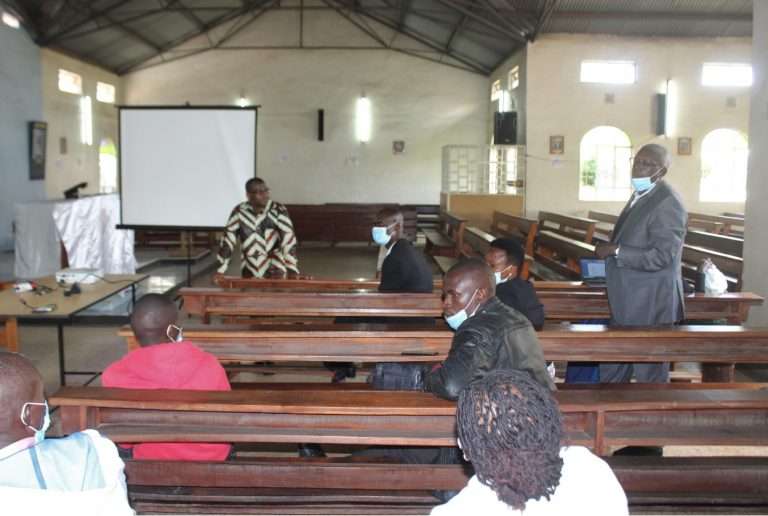
In addition to coordinating the efforts of Jesuits in the fight against HIV in Africa, AJAN partners with the church in reaching out to the vulnerable as much as is possible. Prisoners, being stigmatized, endangered, and labelled by society, are among groups AJAN seeks to reach and affect constructively through partners such as the church in the prisons. Prisoners undergo mental trauma, depression, and some have even ended their own lives.
While catechists work with the youth in correctional centres, this is indeed at the centre of the AJAN heart. Journeying with the youth to create a hope-filled future is among Universal Apostolic Preferences (UAPs) that guide the work of Jesuits across the world. Through another of UAPs, Jesuits make a commitment to walk with the excluded, the outcasts in the world, those whose dignity has been violated, in a mission of reconciliation and justice. The others are; showing the way to God, and caring for our common home.
The training, based on AJAN’s AHAPPY Manual (youth integral development), was designed with cognizance of the behaviour change role catechists carry out day to day as they work to reintegrate prisoners back to society or to reconcile them with God, with themselves, and with others in society whom they may have wounded. They administer spiritual programs teaching inmates the catholic faith and preparation for sacraments.
Normally, catechists are recruited through secondment to the Kenya Prisons by the Catholic Church in Kenya. Catechists have the latitude to liaise with well-wishers and donors to address some prisoners needs, which may be material or spiritual.
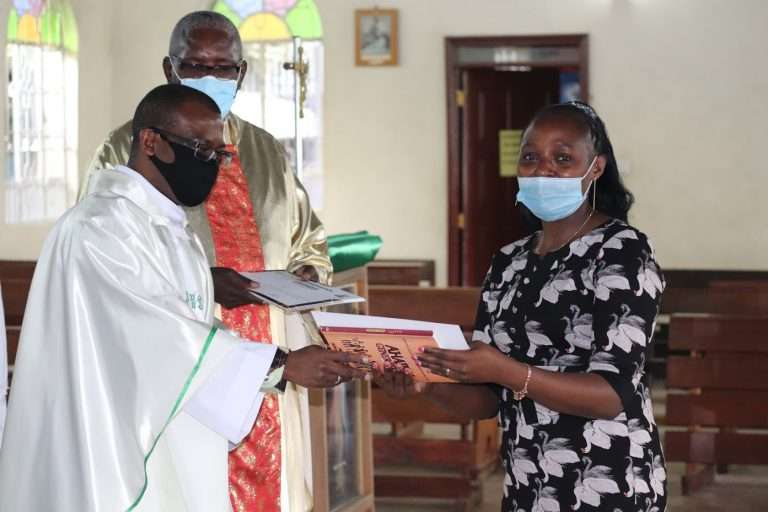
Fr. Peter Kimani, National Chaplain of the Catholic Chaplaincy and Deputy Director of Kenya Prisons Chaplaincy, organized the training alongside Fr. Ismael Matambura Director of AJAN. At the very beginning of the training, a pedagogy of the programme’s vision and objectives was defined and discussed with the participants. They were then taken through AHAPPY modules found in the AHAPPY manual. The topics are the same ones used in Training of Learners, but the approach this time was to equip and empower the catechists to become trainers of youth in the prisons.
All started with the module on Awakening to Myself where topics: I am a Beloved Creature of God, Me Here and Now, My Body and I, Developing Intellectual Capabilities, The Others and I, and God and I, were dissected on the first day -10th June. Fr. Ismael, assisted by Pascalia Sergon -AJAN Capacity Building Officer- engaged the participants using presentations, group work, and video, making the sessions indeed participatory.
The five dimensions of a human being were covered. AJAN works to promote the holistic growth of the human person- guided by Ignatian principles- in a comprehensive approach towards helping the youth avert the devastation that the HIV, other disease that thrive on poverty, and pandemics have subjected Africa to. The continent is disproportionately affected by the virus, while it boasts the globe’s youngest population, with about 70% aged below 35 years. Paradoxically, the youth, who are the future of the continent, bear the heavier burden of infection going by recent statistics from agencies such as the UN AIDS.
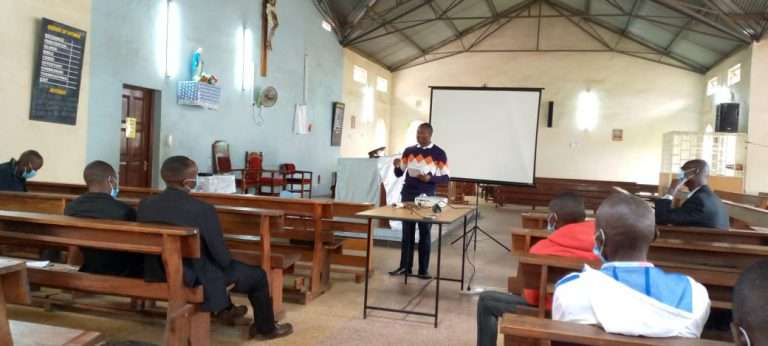
Seven days later, the second training began with a recap of the previous training session. The second step was to focus of the World I as a human being I live in and face its challenges. Topics such as looking at the world with the Holy Trinity, knowing about HIV and AIDS, Sexually Transmitted Infections, Factors, risks and vulnerability among the youth, Prevention, and Voluntary Counselling Centres were highlighted.
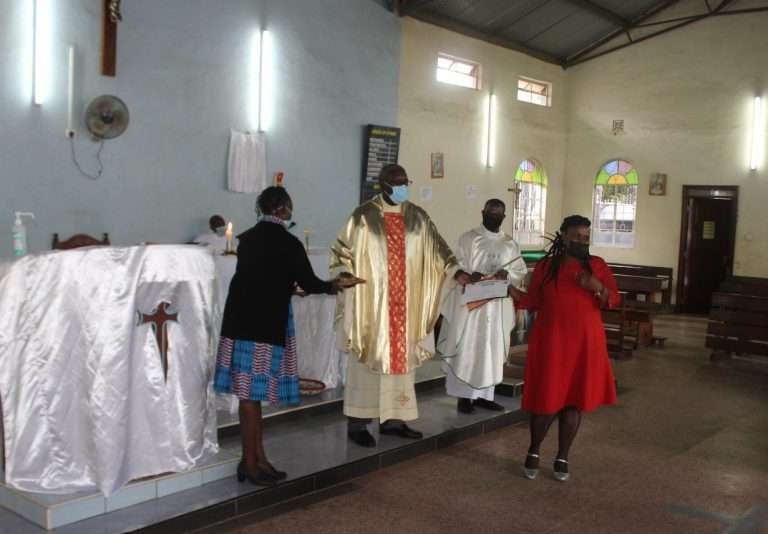
24th June, which happened to be the Feast of John the Baptist Nativity, was the last day of the training and focused on Values and Virtues, the foundation of happy and virtuous life. The principles and values of life came into critical focus as Fr. Matambura engaged the catechists. The team, divided into smaller groups, deduced useful learning points in terms of virtues after watching an educative video. Sticky issues such as chastity and virginity, hard work, commitment, believing in oneself, etc. emerged and were momentarily examined. It came out strongly from the participants that, the work of inducing behaviour change means reaching to the vulnerable whom society has rejected or looked down upon. It is about helping those who are wounded and who have made mistakes move on with life positively with self-trust and hope, integrity and faith, courage, prudence, and love. Even though virginity should be encouraged, secondary virginity should be encouraged for youth who can still be able to live victorious, decent lives. It is never late to do good.
Mass said for participants during the Feast of John the Baptist
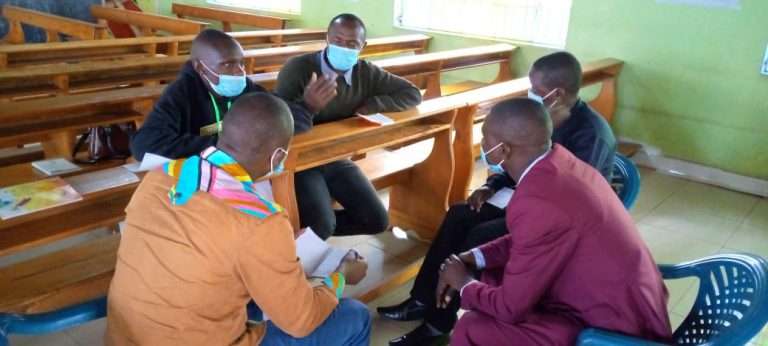
Fr. Ismael Matambura SJ., said mass for the participants and delivered a powerful homily using the story of John the Baptist to urge for humility, commitment, and faith. John the Baptist, said Fr. Ismael, believed in his mission of calling on people to make way for Jesus’s coming. “He has to grow, and I have to diminish” (Jn3:30), he quoted John the Baptist, as he urged participants to be conscious of their being and purpose on earth always.
Our role, Fr. Ismael continued, is to help the wounded people (young and adults) we minister to regain purpose of life. Let these God’s words from the reading of Isiah resonate in our hearts: “I will make you a light to the nations, that my salvation may reach the ends of the earth” (Is.49,6). We are called to be true channel of God ‘salvation in our service to prisoners
“We must use our capacities: intellectual, physical, emotional, social and spiritual to serve mankind including inmates effectively”, he said. “God intended for our light to reach each prison”, he brought the message home. Make ready the way of the Lord, make straight all his paths. Every valley shall be filled, and every mountain and hill shall be brought low, And the crooked shall be made straight, and the rough ways smooth, reads (Luke 3, 4-6.)
Participants commissioned, awarded certificates
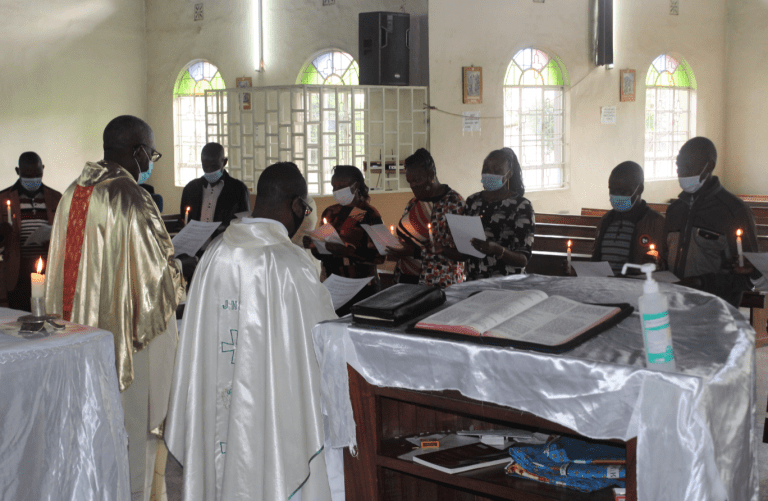
Participants were glad to receive certificates from AJAN and Kenya Prisons as testimonial for their involvement in the training. Copies of the AHAPPY Manual were handed to the participants after Fr. Peter Kimani, assisted by Fr. Ismael, commissioned the candle-totting catechists to go and practise what they had learnt. “It is time to go and practice what you have been learning”, encouraged Fr. Peter Kimani. “AHAPPY has given us skills and knowledge to do our work. It will help us to help the young offenders in our prisons as well as the children. The skills will help fill a gap”, he weighed in.
Catechists applaud training
Participants reacted positively to the training, going by some who talked to AJAN communications. Fred Ekamuran, a chaplain at Kamiti Prison, who was coordinator for this training, said, “sometimes people excel in one aspect of life and do badly in another. This training helps one to have a grasp of all.” Kalekye from Lang’ata Maximum Women Prison had this to say, “I have underlined the importance of understanding people because they come from varying backgrounds and are desperate to be understood”. Nyawira, who is based at Kiambu Prison, said that she will apply the lessons learnt in engaging with people of all ages. “There is always something someone is lacking and am empowered to help them now”.
“We give all glory to God for all who participated in one way or another to make the event possible and successful. As trainers, we also learnt a lot from the experiences shared by our dear participants. There is always something new to learn every day!”, Fr. Ismael Matambura said at completion of the exercise.

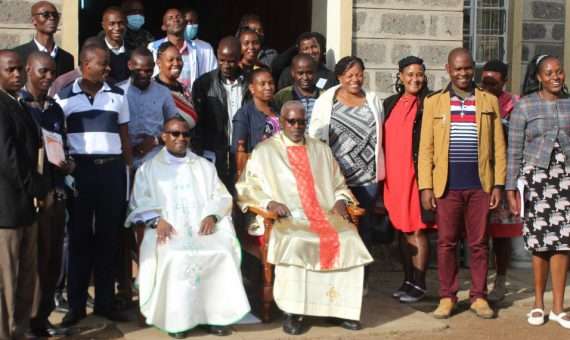
Comments are closed.